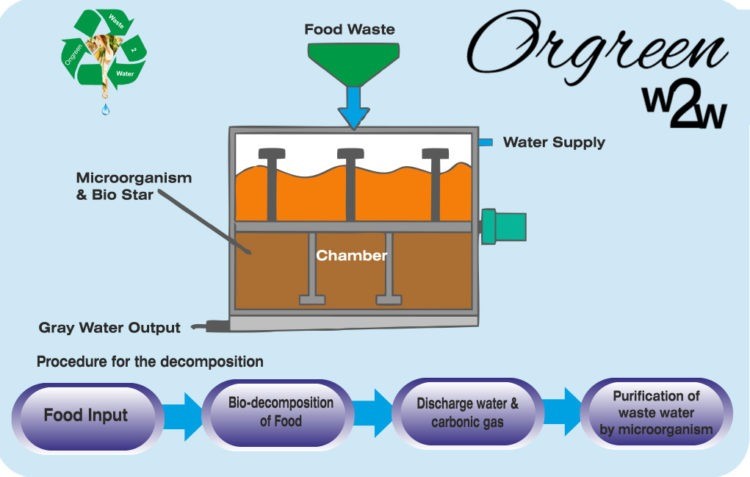
SOUMIS
Reducing our carbon footprint at CFB Halifax
Par Elizabeth Sharpe,
CFB Halifax PA Intern
Technology is constantly evolving to adapt to our ever-changing needs as a society, and green technology – meant to reduce human impact on the environment – is a great example of one of these adaptive technologies.
Canadian Forces Base (CFB) Halifax has recently adopted a new technology in order to do its part in reducing its environmental impact through reducing its carbon footprint in the kitchen. According to the National Zero Waste Council, approximately 2.2 million tonnes of food waste ends up in landfills every year in Canada, and this disposal of food waste has a significant carbon footprint.
In order to dispose of food waste safely and cost-effectively, CFB Halifax’s Base Administration team has implemented the LFC Power Knot, or anaerobic bio digester, in its institutional kitchens. This system is able to break down any organic material such as fruit, vegetables, banana with peelings, meat, nuts, fish with bones, crustaceans, eggshells, bread, pasta, cheese and corn. The bio digester diverts this food waste from landfills by breaking it down into environmentally safe grey water that can be used for landscaping, or just discharged down the drain.
Currently, CFB Halifax has functioning bio digesters in its kitchens at two accommodation facilities in Halifax (Tribute Tower and Juno Tower), and one in 12 Wing Shearwater (Warrior Block). There is also potential for one to be installed at Naval Fleet School Atlantic’s Damage Control Division in Purcell’s Cove.
Between CFB Halifax and 12 Wing Shearwater, anywhere from 300-400 personnel are fed every meal through the on-site kitchen/mess facilities, which ultimately results in food waste. This means that thousands of pounds of food waste have already been diverted away from ending up in landfills, allowing the Base to begin reducing its carbon footprint.
CFB Halifax is not the only military Base in Canada to use this new technology. Louis Duchesne is the Department of National Defence (DND) and Canadian Armed Forces (CAF) Food Facilities & Equipment Analyst, and says that there are currently 24 bio digesters installed in 17 DND locations across the country.
One of Duchesne’s responsibilities in this role is “…to initiate projects that are beneficial in terms of technology, safety and environment.” The Canadian Government has an objective of reducing food waste sent to landfills by 70% before the year 2030, and after researching various technologies over a five-year period, Duchesne and his team determined that the bio digester was the most efficient in achieving this goal.
While the government’s goal may seem daunting, there are simple and effective ways for defence team members to help by reducing food waste and their carbon footprint at home. When it comes to reducing food waste, the Government of Canada website has some useful tips for Canadians, which can be found ici.
For more information on how you and your family can limit food waste both at work and at home, visit the Food Matters Action Kit website.






